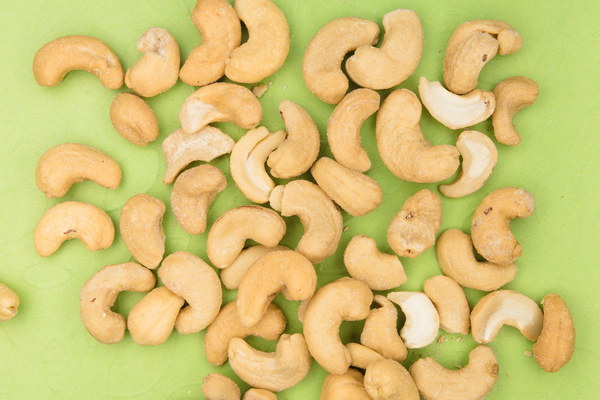Nutritional Supplements for Osteomalacia Nourishing Your Bones from Within
Osteomalacia, a condition characterized by weakened and soft bones, can be both painful and distressing. While medical treatment is essential, dietary adjustments can significantly aid in managing this condition. In this article, we will explore the importance of nutritional supplements for osteomalacia and discuss the best food sources to nourish your bones from within.
Understanding Osteomalacia
Osteomalacia is a disorder that affects the mineralization of bone, leading to weakened and soft bones. It is often caused by a deficiency in vitamin D, calcium, or phosphorus, which are crucial for bone health. Other factors, such as kidney disease, malabsorption, and certain medications, can also contribute to the development of this condition.
The Importance of Nutritional Supplements
While a well-balanced diet is essential for maintaining bone health, some individuals may require additional nutritional supplements to meet their body's demands. Here are some key nutrients to consider:
1. Vitamin D: Vitamin D is essential for calcium absorption and bone growth. It can be obtained from sunlight exposure, certain foods, and supplements. For individuals with osteomalacia, vitamin D supplementation is often recommended.
2. Calcium: Calcium is the primary mineral responsible for bone strength. Foods rich in calcium, such as dairy products, leafy greens, and fortified foods, should be included in your diet. Calcium supplements may be necessary for those with difficulty absorbing calcium from their diet.
3. Phosphorus: Phosphorus is another critical mineral for bone health. It works with calcium to maintain bone density. Foods high in phosphorus include dairy products, meats, and nuts. Phosphorus supplements may be needed for those with malabsorption issues.
4. Magnesium: Magnesium plays a role in bone formation and calcium absorption. Foods rich in magnesium include dark leafy greens, nuts, seeds, and whole grains. Magnesium supplements can be beneficial for those with low magnesium levels.
5. Vitamin K: Vitamin K is essential for calcium metabolism and bone health. Leafy greens, broccoli, and fortified cereals are good sources of vitamin K. Supplements may be recommended for those with vitamin K deficiency.
6. Protein: Adequate protein intake is crucial for bone health, as it helps in the formation of collagen, the main protein in bone tissue. Foods rich in protein include lean meats, fish, poultry, dairy, legumes, and nuts.
Best Food Sources for Osteomalacia
To support your bone health, incorporate the following foods into your diet:
1. Dairy Products: Milk, cheese, and yogurt are excellent sources of calcium, vitamin D, and phosphorus. Opt for fortified varieties to increase your vitamin D intake.
2. Leafy Greens: Spinach, kale, and collard greens are rich in calcium, vitamin K, and magnesium. These nutrients are essential for bone health.
3. Fish: Salmon, mackerel, and sardines are not only high in calcium and vitamin D but also provide omega-3 fatty acids, which have anti-inflammatory properties.

4. Nuts and Seeds: Almonds, walnuts, chia seeds, and flaxseeds are good sources of calcium, magnesium, and phosphorus. These foods also provide healthy fats and protein.
5. Legumes: Beans, lentils, and chickpeas are rich in calcium, phosphorus, and protein. Incorporate these into soups, salads, or as a main course.
6. Fruits and Vegetables: Citrus fruits, berries, and cruciferous vegetables like broccoli and cauliflower are high in vitamin C, which helps in the absorption of non-heme iron and promotes bone health.
7. Fortified Foods: Fortified cereals, juices, and plant-based milk can provide additional calcium and vitamin D to your diet.
Conclusion
Osteomalacia can be a challenging condition, but with the right dietary approach and nutritional supplements, you can help manage your symptoms and support bone health. Consult with your healthcare provider to determine the best nutritional supplements and dietary adjustments for your specific needs. Remember that a balanced diet and regular exercise are key to maintaining overall health and well-being.









